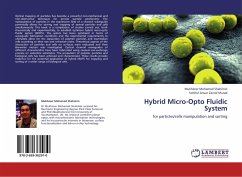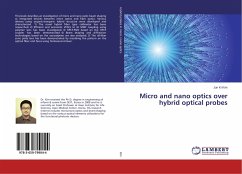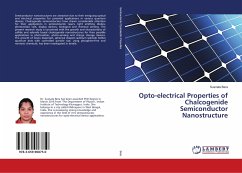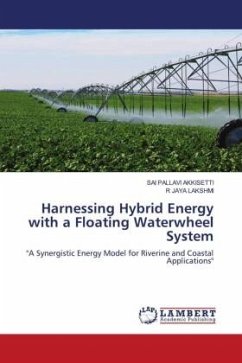
Hybrid Micro-Opto Fluidic System
for particles/cells manipulation and sorting
Versandkostenfrei!
Versandfertig in 6-10 Tagen
32,99 €
inkl. MwSt.

PAYBACK Punkte
16 °P sammeln!
Optical trapping of particles has become a powerful non-mechanical and non-destructive technique for precise particle positioning. The manipulation of particles in the evanescent field of a channel waveguide potentially allows for sorting and trapping of several particles and cells simultaneously. This book is a compilation of studies carried out, both theoretically and experimentally, to establish optimum hybrid micro-opto fluidic system (MOFS). The system has been optimised in terms of waveguide fabrication conditions and the experimental requirements to ultimately allow for the separation o...
Optical trapping of particles has become a powerful non-mechanical and non-destructive technique for precise particle positioning. The manipulation of particles in the evanescent field of a channel waveguide potentially allows for sorting and trapping of several particles and cells simultaneously. This book is a compilation of studies carried out, both theoretically and experimentally, to establish optimum hybrid micro-opto fluidic system (MOFS). The system has been optimised in terms of waveguide fabrication conditions and the experimental requirements to ultimately allow for the separation of polymer particles and mammalian cells according to their size and refractive index. Theoretical aspects of the interaction of particles and cells on surfaces were evaluated and their Brownian motion was investigated. Optical channel waveguides of different characteristics have been fabricated using caesium ion-exchange process on soda-lime substrates. The propulsion of polymer particles and biological cells has been achieved and characterised. These results provide evidence for the potential application of hybrid MOFS for trapping and sorting of a wider range of biological cells.












